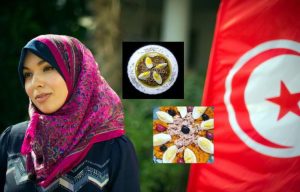Extending the culture of life to places affected by violence and death — this is the goal of the Legal Project. Father Saverio Paolillo, a supporter of this initiative, talks to us about it.
Gabriel, one of our children, looks like he is 12; but we don’t know his real age, since his birth was never officially recorded. He used to wander around and sniff shoemakers’ glue. He often stopped behind the gates of our centre to watch the other children. We invited him to stay in our centre and participate in our project more than once, but after a few days he would always leave. Then, all of a sudden, the miracle happened: Gabriel decided to stay. He has taken part in the Legal Project regularly for about a year now. He is attending the first year of primary school, doesn’t sniff glue anymore, and lives with one of his sisters. He is at a healthy weight and the mycosis he was suffering from has gone.
Still, a veil of sadness covers his face. When someone mentions violence against children, Gabriel bursts into tears. It is evident that memories of the aggression he suffered during the childhood he was denied come back to haunt him. He prefers not to talk about it; but you can see the pain in his eyes. Then he finally begins to smile again. Life has not yet given him what he deserves — most of all the care of a loving family. The wounds of his body have been healed, but those of his soul are still open, and probably always will be.
Nevertheless, he desperately wants to live. Giving up the addiction to sniffing glue is very difficult, yet Gabriel has not sniffed for more than a year now. He has rejected drugs and crime and thus already scored a victory against death — and this is not an exaggeration, since drugs and crime lead to a tragic crossroads: prison or death. I must confess that I do not know what is worse. Ending up in prison is like being buried alive in a social coffin, where human dignity putrefies. The Brazilian prison system, with a few rare exceptions, dehumanises individuals, and they later find it very difficult to reintegrate into society. The risk of recidivism is very high. I have been living in Brazil for 30 years, and I have seen the brutality of both juvenile and adult prisons.
Overcrowding in some facilities exceeds their intended capacity by up to four times. Many prisons lack hygiene and acceptable living conditions. The permanent inactivity of detainees, and torture and abuse by the prison guards are still unresolved problems in the Brazilian prison system. In addition to all this, it must be underlined that many prisons are controlled by criminal organisations. In the state of Paraiba, where I currently live, the prisons are under the control of the same factions that dominate drug trafficking in the neighborhoods on the periphery. Crime bosses give orders via mobile phones, which continue to be smuggled even into ‘high-security’ prisons. The inmates have to obey the bosses’ orders, or they are murdered. The prison officers work under terrible conditions and are unable to put an end to this situation; so they often resort to repressive methods in order to maintain order and discipline. Rehabilitation is impossible in this context.
Those Brazilian teenagers living under difficult circumstances who do not end up in jail often face death. A recent study showed that every 3 out of 1,000 Brazilian adolescents aged 12 to 18, living in a city with over 100,000 inhabitants, run the risk of being killed before they are 19 years old. The highest rates of violence against adolescents are recorded in the north-eastern region of the country. There, almost 6 out of 1,000 children risk their lives. Some of Gabriel’s young neighbours have already ended up in jail or worse, died.
The Legal Project aims to prevent these tragic events. The people involved in this initiative are committed to helping young people live a simple life — but as protagonists of their own stories, exercising freedom and responsibility. A life characterised by values, dignity, access to human and civil rights, and a sense of citizenship. The Legal Project is an initiative of people on the frontline, to save kids from the clutches of death and disseminate the culture of life.








